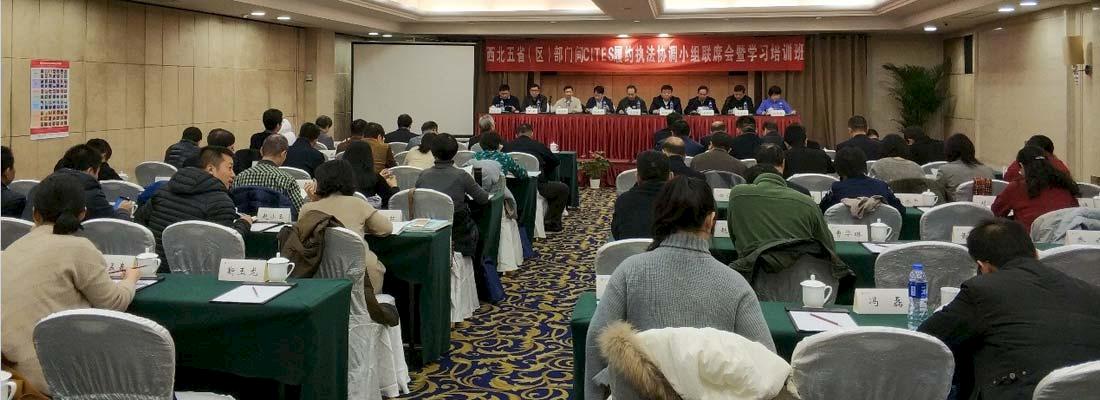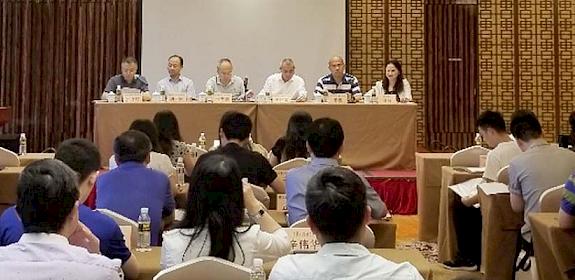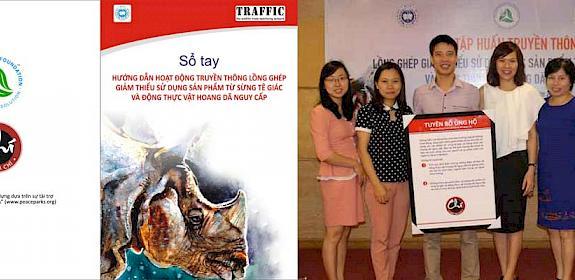Nanning Customs officers receive CITES training
Beihai, Guangxi, November 2016—Last month, around 60 Nanning Customs officials from the anti-smuggling and passenger inspection departments were trained in implementation of measures under the Convention on International Trade in Endangered Species of Wild Fauna and Flora (CITES) during an event convened by the Guangxi branch of China’s CITES Management Authority (CITES MA) and TRAFFIC.
As well as detailed information about the CITES Appendices listings, the delegates heard from the Head of the CITES MA concerning the recent outcomes of the 17th Conference of the Parties to CITES (CoP17) in South Africa, and the extra vigilance that officers need to pay to newly uplisted species.
The delegates were also trained in identification of species often found in illegal trade by experts from China’s Scientific Authority (CITES SA), while timber identification was covered by an expert from Guangxi University.
Species identification was among the top concerns raised by delegates: currently there are a limited number of centres certified by China’s Judiciary Ministry to issue official species identification documents although there are ongoing discussions to open more.
In response to earlier feedback on this issue, TRAFFIC has developed an identification handbook for illegal wildlife products aimed both at enforcement officials and logistics companies. It was highly welcomed by the Guangxi branch of China’s CITES MA who plan to print additional copies for use by their officers and courier companies in 2017.
During the meeting, TRAFFIC spoke about the current global and domestic situation regarding wildlife trafficking and the need for co-operation and information sharing to facilitate enforcement action to counter wildlife crime.
Customs are the guards at China’s Gate and important implementers of CITES in China. Customs officials need to be updated post-CoP 17 so they can pay the high attention to the latest developments regarding CITES.
Zhai Xincui, Director of the Guangxi Branch of China’s CITES MA.
“Nanning Customs bear a heavy responsibility for deterring the smuggling of wildlife products smuggled from neighbouring Viet Nam,” said Zhou Fei, Head of TRAFFIC’s China office. “Their enforcement successes in recent years show they take this responsibility very seriously and TRAFFIC offers our continued support towards their efforts in combating wildlife smuggling.”
The training event was supported by the Critical Ecosystem Partnership Fund (CEPF) and GIZ on behalf of the German Federal Ministry for Economic Cooperation and Development (BMZ) and the German Federal Ministry for Environment, Nature Conservation, Building and Nuclear Safety (BMUB).
About CEPF

The Critical Ecosystem Partnership Fund (CEPF) enables civil society to protect the world’s biodiversity hotspots—biologically rich ecosystems that are essential to humanity, yet highly threatened. https://www.cepf.net/





